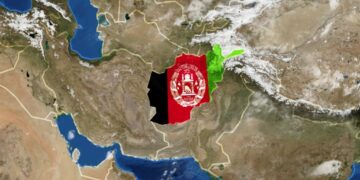Lawal, O. I (Ph.D);1 & Onipede O. (Ph.D)2
1Adeyemi Federal University of Education, Ondo State, Nigeria
*Corresponding Author Email: lawalois007@gmail.com …
Highlights
Abstract
This paper explores the pivotal role of vocational and technical education (VTE) as a powerful tool for poverty reduction, job creation, and sustainable development. As outlined in the National Policy on Education, VTE aims to provide quality education and training that equips individuals with the necessary skills for their chosen occupations, ensuring they are both marketable and employable. It encompasses training in skills for gainful employment across various sectors. The paper delves into key concepts such as poverty alleviation, unemployment, the national policy, and the objectives of VTE. It further identifies the areas covered by vocational education and the institutions offering such training. Additionally, it addresses the challenges facing VTE and offers recommendations for overcoming these obstacles. Implementing these recommendations could significantly enhance skill acquisition within VTE, stimulate job creation, and foster sustainable development.
Keywords: Poverty alleviation, Job creation, Vocational and Technical Education and Sustainable development.
1. Introduction
Education serves as a crucial tool for training individuals to foster societal transformation and development. It unlocks the development of personal and national potentials, ensuring everyone has the right to education. Specifically, Vocational and Technical Education (VTE) is dedicated to preparing individuals for specific occupations in agriculture, trade, or industry. This preparation is achieved through a blend of theoretical instruction and practical experience, offered by high schools in their commercial and technical divisions, specialized institutions of collegiate standing, and tertiary institutions (Merriam-Webster, 2023).
Okorocha’s perspective, as cited by Okolocha and Baba (2016), views VTE as an educational pathway that encompasses knowledge, skills, competencies, and a variety of structural activities aimed at securing employment in various economic sectors or enabling individuals to become self-dependent by creating jobs.
The progress of any nation is fundamentally dependent on the social and economic inputs of its citizens, particularly the youth, who form a significant portion of the workforce. However, a concerning scenario has emerged in Nigeria, where a vast number of young graduates possess academic qualifications but lack the practical skills needed for employment. This mismatch between educational outcomes and job market requirements has resulted in a generation of graduates seeking elusive white-collar jobs.
In contrast, many developed nations have recognized Vocational and Technical Education (VTE) as a cornerstone of national development and industrial success. VTE is highly valued for its focus on imparting practical skills and training that directly contribute to job creation and employment opportunities. Despite its proven benefits, the Nigerian government has not accorded VTE the level of importance it merits, leading to an alarmingly high rate of unemployment in the country. This oversight highlights a critical gap in the national education policy, underscoring the need for a strategic reevaluation to prioritize vocational and technical training as a means to empower the youth, enhance employability, and stimulate economic growth.
The increasing awareness of the limitations of purely theoretical education, which produces graduates ill-equipped for employment, has underscored the critical necessity for Vocational and Technical Education (VTE) in Nigeria. This shift towards practical, skill-based training is driven by the rising demand for skilled workers across industrial, agricultural, and commercial sectors, marking VTE as an indispensable element of Nigeria’s economic future. As highlighted by Okorocha in Okolocha and Baba (2016), VTE provides a comprehensive educational experience that imparts knowledge, skills, competencies, and a variety of practical experiences, enabling individuals to secure employment across various economic sectors or to become self-reliant entrepreneurs. The significance of VTE has never been more pronounced, as the prevalent lack of marketable skills is identified as a primary cause of the ongoing surge in unemployment and poverty, presenting formidable challenges to our society. Thus, embracing VTE is essential for addressing these issues, fostering job creation, and facilitating sustainable economic development.
2. Vocational and Technical Education: National Policy and Goals
Vocational and Technical Education (VTE) is recognized as a crucial component of the educational landscape, offering a skill-based program at various educational levels. Defined broadly, VTE encompasses not only general education but also the in-depth study of technologies, sciences, and the acquisition of practical skills, attitudes, and knowledge necessary for various economic and social sectors (FRN, 2004). Stemming from the National Curriculum Conference of 1969, the National Policy on Education highlights VTE’s role in integrating into general education and preparing individuals for the workforce, ensuring they are ready for gainful employment.
Despite the Nigerian government’s recognition of VTE’s pivotal role in addressing current economic challenges, there remains a significant gap in its implementation within higher education. As of the latest count, Nigeria boasts 50 federal, 60 state universities, and 148 private universities, yet lacks a standardized and mandatory inclusion of VTE in their degree programs (Premium Times, 2023). This oversight perpetuates an outdated Aristocratic educational model, producing graduates who lack the practical skills needed in today’s job market. This disconnect raises concerns about how these graduates will fare in the labor market, with many facing disillusionment and emotional distress upon realizing the gap between their educational background and the demands of the workforce.
- The World Bank (World Bank, 2007), International Labour Organization (ILO, 2009), and United Nations Educational, Scientific and Cultural Organization (UNESCO) have all acknowledged the importance of Vocational and Technical Education (VTE). At the Seoul Congress in 1999, UNESCO, as an advocate for VTE, established key objectives that underscore the role of VTE in contributing to global development and individual empowerment. Therefore, three main objectives were set for Vocational and Technical Education and Training (TVET) which are:
- To provide TVET for all (Training in Vocational and Technical Education)
- To orientate TVET for sustainable development.
At the UNESCO International Congress in Shampai in 2021, it was emphasized that the foundational elements of economic development, equity, and environmental sustainability are vital to the efforts in Vocational and Technical Education (VTE). The congress highlighted that Technical and Vocational Education and Training (TVET) transcends mere workforce preparation, aiming instead to contribute significantly to the overarching objective of sustainable human development.
Furthermore, the Nigerian National Policy on Education (NPE 2004:30) defines the roles of vocational education as follows:
- An integral part of general education
- A means for preparing for occupational fields and effective participation in the world of work.
- An aspect of lifelong learning and preparation for responsible citizenship.
- A method of facilitating poverty alleviation.
The assertions align with those found in the UNESCO (2002) reports, highlighting a growing recognition of the importance of Vocational and Technical Education (VTE). With the rapid pace of technological advancement globally, where outdated methodologies are giving way to modern practices, there’s a pressing need to reassess how leaders approach VTE. By revitalizing the modes and methods of VTE learning, the aim is to inspire young people to enroll in VTE programs, highlight the critical importance and necessity of such education, and thereby mitigate unemployment and foster job creation.
The objectives of the Vocational Technical Education Programme, as delineated in the National Policy on Education (2004), include:
- Providing trained manpower in the applied sciences, technology, and business, particularly at craft and technical levels.
- Offering technical knowledge and vocational skills essential for agriculture, commerce, and economic development.
- Equipping individuals with the necessary skills to become economically self-reliant.
3. Concept of Unemployment
Unemployment refers to the scenario where individuals are eager and able to work but cannot secure employment. It is defined as the state of being capable of working, actively seeking employment, but failing to find any work (Encyclopedia Britannica, 2023). Youth unemployment has turned into a significant issue, exacerbating daily as tertiary institutions produce a growing number of unskilled graduates each year. As highlighted by Adeiye (2023), Nigeria holds the position of having the second-highest rate of youth unemployment globally. According to The Spectator Index (2003), a website focusing on news and finance, Nigeria ranked second on a list of 20 countries with a youth unemployment rate of 53%, with South Africa leading at 61%. This alarmingly high unemployment rate in Nigeria necessitates proactive interventions to forestall future complications. Ajufo (2013) emphasized that unemployment has become a critical challenge affecting Nigerian youths, leading to an increase in militancy, violent crimes, kidnappings, unrest, and socially deviant behaviors. A viable solution to this unemployment crisis is to equip youths with marketable skills that render them employable or self-reliant. Vocational and Technical education stands out as the primary means of providing such skills to the youth. It’s imperative to acknowledge that widespread unemployment among the populace fosters poverty, urging the need for immediate actions to mitigate or diminish the country’s poverty levels.
4. Poverty Alleviation
Poverty alleviation aims to permanently eradicate poverty by improving the quality of life for those living in impoverished conditions. Poverty, characterized by the inability to meet basic human needs such as adequate nutrition, clean water, healthcare, clothing, shelter, and education, can be understood in terms of relative or absolute poverty. Relative poverty measures income disparity within a society or country, while absolute or extreme poverty denotes a lack of resources to fulfill basic needs (Wikipedia, 2023).
The prevalence of poverty is notably higher in developing countries than in developed ones, often seen as an inevitable consequence of limited industrialization and rapid population growth. In religious contexts, such as Judaism, poverty is viewed negatively, lacking any redeeming qualities. Therefore, it is essential to assist the impoverished in escaping their circumstances through education, training, employment opportunities, and support in establishing businesses.
In Nigeria, the pressing need to address poverty and unemployment through vocational technical education in various occupations has become increasingly apparent. The following are the impacts of poverty on Nigerian society and development, as outlined by Olaitan (2010):
- Educational Disadvantages: Poverty hinders access to education, perpetuating a cycle of poverty across generations.
- Health Issues: Poor living conditions and lack of access to healthcare services lead to higher rates of diseases and lower life expectancy.
- Economic Constraints: Poverty limits economic growth and development by reducing the workforce’s productivity and potential.
- Social Inequality: It exacerbates social divisions and inequality, leading to increased crime rates and social unrest.
- Limited Access to Basic Needs: The inability to afford or access basic necessities significantly reduces the quality of life.
The consequences of poverty are as follows:
- Submitting oneself for usage in vote rigging during election for a ransom payment or stipend
- Allowing oneself to be used as political thug.
- High level of dishonesty in the use of other peoples resources under the presenceof development
- Instability in government and lack of vision because a government that is forced out will never be appreciated by the incoming government in whatever its vision.
- Inability to yield to pressure to step down despite unsatisfactory comment against individual in political positions.
- Unabated daily migration with or without permits to seek for greener pasture.
- Hostage taking and kidnapping.
- Human trafficking.
- ritual killing
- Prostitutions at home and abroad
- Armed robbery and insecurity
- Impersonation and drug trafficking
5. Sustainable Development
The prosperity and well-being of a nation and its populace are crucially dependent on the country’s sustainable economic, political, industrial, agricultural, and educational stability. Usoro, UsorAkpan, and Otu, as cited in Ozoemena (2013), posited that development is marked by a reduction in poverty, illiteracy, unemployment, and income inequality levels. Sustainable development is defined by the International Institute for Sustainable Development (IISD, 2022) as development that satisfies the needs of the present without jeopardizing the ability of future generations to meet their own needs. Among the 17 Sustainable Development Goals, several align closely with the aims of this paper, including No Poverty, Zero Hunger, Quality Education (particularly vocational education), Decent Work and Economic Growth, and Industry, Innovation, and Infrastructure. These goals can be effectively achieved through the careful management of vocational and technical education to facilitate youth skill acquisition.
6. School of Vocational Technical Education
Before exploring the educational institutions that offer vocational training, it’s important to acknowledge those individuals who have acquired vocational skills through the apprenticeship system, which typically spans two to three years. This form of skill acquisition focuses solely on the practical aspect of training, often neglecting the theoretical knowledge necessary for performing the job. The training largely relies on imitation and trial-and-error methods.
At the foundational level of vocational education, there are programs designed for pre-vocational (Junior Secondary School level) and vocational occupations (Senior Secondary School level). Technical Colleges, Monotechnics, and Polytechnics provide training for those aspiring to become technicians in various fields of vocational and technical education, awarding Trade or Diploma Certificates (OND) upon completion.
For intermediate level vocational training, individuals are prepared to become technologists in various domains of vocational and technical education. This training occurs in Monotechnics and Polytechnics, leading to the award of a Higher National Diploma (HND).
At the university level, training in vocational and technical education skills is offered across various occupations, culminating in the award of Bachelor of Technology, Science, or Education degrees (B.Tech/B.Sc/B.Sc Ed).
The range of training from the foundational level to university encompasses areas such as Agricultural Education, Business Education, Home Economics Education, Computer Education, and Technical Education.
7. Areas of Vocational and Technical Education
These are occupations where skills can be acquired through trainings in various aspects of vocational and technical education. Acquisition of the skills makes one a marketable Individual or an employer of labour.


8. Constrains Towards Effective Vocational and Technical Education in Nigeria.
Numerous challenges impede Nigeria’s government and private sector efforts to effectively implement vocational and technical education (VTE) programs. According to Abdulramon (2013), these constraints include:
- Misconception of the Definition and Meaning: There exists a misunderstanding of what vocational and technical education entails, leading to undervaluation and neglect of this crucial educational sector.
- Unstable Government Policy: Fluctuating policies and lack of continuity in educational planning disrupt the effective implementation of VTE programs.
- Lack of Electricity/Power in Workshops: The absence of reliable electricity supply in workshops hinders the operation of equipment and machines, essential for practical training.
- Poor Implementation of Government Programmes: Even when policies are well-intended, their poor execution often results in ineffective educational outcomes.
- Problems Relating to VTE Curriculum: Issues with the curriculum, such as outdated content, irrelevance to the current job market, and lack of practical components, limit the effectiveness of VTE.
- Inadequate Qualified VTE Personnel, Leaders, and Administrators: There is a shortage of well-trained and experienced instructors and administrators to lead VTE programs efficiently.
- Influence of Politics on VTE Programs: Political interference can divert resources, influence curriculum decisions, and prioritize certain programs over others for political rather than educational reasons.
- Lack of Workshops and Basic Facilities: The absence of well-equipped workshops and facilities necessary for hands-on training compromises the quality of vocational and technical education.
9.Conclusion
Vocational and Technical Education (VTE) is identified as the most effective tool for addressing Nigeria’s unemployment issues and promoting poverty alleviation. By reinforcing Vocational and Technical Education, individuals can acquire skills, leading to job creation and sustainable development. Consequently, VTE holds a significant position in resolving the unemployment crisis, thereby facilitating job creation and ensuring sustainable development in Nigeria.
10. Recommendations
To enhance the effectiveness of Vocational and Technical Education (VTE), the following recommendations are proposed:
- Adequate Funding: The Federal Government should allocate sufficient funds to support VTE programs, ensuring the availability of resources necessary for comprehensive training.
- Mandatory VTE Subjects: Subjects related to vocational and technical education should be made compulsory in schools to encourage early exposure and skill acquisition among students.
- Provision of Equipment: Both public and private sectors should contribute to equipping schools with the necessary tools, machines, and equipment to facilitate hands-on learning.
- Establishment of Acquisition Centres: Government should establish more skill acquisition centers fully equipped with modern machines and equipment to support practical learning.
- Continuous Professional Development: Regular training, workshops, and seminars should be organized for VTE educators and leaders to update their knowledge and teaching methodologies.
- Recruitment of Qualified Educators: Adequate numbers of qualified VTE educators should be employed to ensure effective delivery of vocational and technical education.
- Scholarship Programmes: Scholarships should be offered to both staff and students involved in VTE programs to encourage participation and further study in this field.
- Employment Opportunities: Industries should be encouraged or mandated to employ VTE graduates, recognizing the practical skills and technical knowledge they bring to the workforce.
- Relevant Industrial Training: Students undergoing Supervised Industrial Work Experience Scheme (SIWES) should be placed in firms and industries that are directly related to their specific VTE programs, ensuring relevant and practical on-the-job experience.
Conflict of Interest
The research was completed with no conflict of interest.
References
Abdulramon, L. W. (2013). Technical and vocational education, a tool for national development in Nigeria. Mediterranean Journal of Social Sciences.
Adeiye, J. (2023). Youth unemployment makes Nigeria world’s second worst. Foundation for Investigative Journalism: Spectator Index. Retrieved from [URL if available]
Ajufo, B. I. (2013). Challenges of youth employment in Nigeria: Effective career guidance as a panacea. African Research Review, 7(1), 21.
Encyclopedia Britannica. (2023). Unemployment. Retrieved from https://www.britannica.com/money/unemployment
Federal Republic of Nigeria. (2004). National Policy on Education. NERDC Press.
International Institute for Sustainable Development. (2022). Sustainable development. Retrieved from http://iisd.org/mission sustainable development.
International Labour Organization. (2009). Global employment trends database. Retrieved from http://www.ilo.org/skills/lang/–en/index.htm.
Merriam-Webster. (2023). Vocational education. Retrieved from https://www.merriam-webster.com.
Okolocha, C. C., & Baba, E. I. (2016). The role of vocational and technical education (VTE) in Nigeria democratic dispensation. International Journal of Capacity Building in Education and Management, 24, 12-24.
Olaitan, S. O. (2010, May 22). Vocational education: Tool for poverty eradication and employment generation in Africa. Paper presented at the Annual International Conference and Award Conferment of the Toplead Media Communication Company, New Chelsea Hotel, Federal Capital Territory, Abuja.
Ozoemena, S. A. (2013). Vocational and technical education: A tool for sustainable development in Nigeria. Journal of Education and Practice, 4(25), 127-131.
Premium Times. (2023, May 16). Private university in Nigeria now 148. Premium Times Publishing Company. Retrieved from [URL if available]
Seoul Congress. (1999). Second International Congress on Technical and Vocational Education. [Place of publication not identified]: [Publisher not identified].
Spectator Index. (2023). Youth employment makes Nigeria world’s second worst. Foundation for Investigative Journalism: Spectator Index. Retrieved from [URL if available]
The World Bank. (2007). Understanding poverty. Retrieved from http://www.web.worldbank.org.
Wikipedia. (2023). Poverty reduction. Retrieved from https://en.m. wikipedia.org/poverty-reduction.
About this Article
Cite this Article
APA
Lawal, O. I. & Onipede O. (2024). Vocational and Technical Education: A Potent Weapon for Poverty Alleviation, Job Creation and Sustainable Development. In K. S. Adegbie, A. A. Akinsemolu, & B. N. Akintewe (Eds.), Exploring STEM frontiers: A festschrift in honour of Dr. F. O. Balogun. SustainE.
Chicago
Lawal, O. I and Onipede O. 2024. “Vocational and Technical Education: A Potent Weapon for Poverty Alleviation, Job Creation and Sustainable Development.” In Exploring STEM Frontiers: A Festschrift in Honour of Dr. F.O. Balogun, edited by Adegbie K.S., Akinsemolu A.A., and Akintewe B.N., SustainE.
Received
22 March 2024
Accepted
12 May 2024
Published
30 May 2024
Corresponding Author Email: lawalois007@gmail.com
Disclaimer: The opinions and statements expressed in this article are the authors’ sole responsibility and do not necessarily reflect the viewpoints of their affiliated organizations, the publisher, the hosted journal, the editors, or the reviewers. Furthermore, any product evaluated in this article or claims made by its manufacturer are not guaranteed or endorsed by the publisher.
Distributed under Creative Commons CC-BY 4.0
Share this article
Use the buttons below to share the article on desired platforms.














